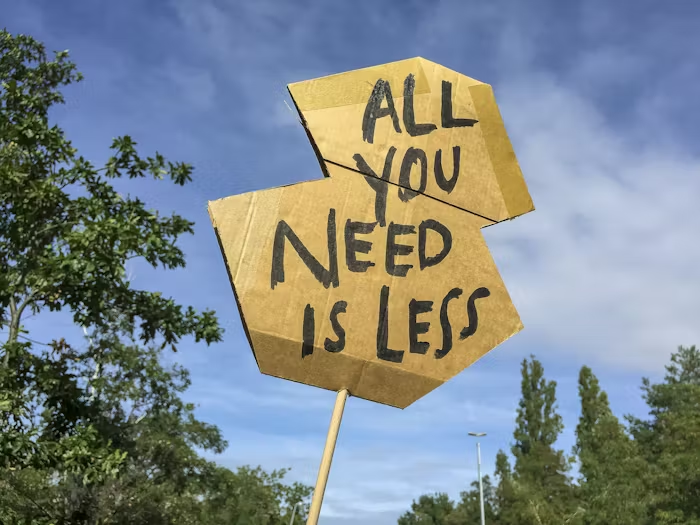Understanding Betrayal: What Does It Mean?
Betrayal is a profound emotional experience that can significantly impact the dynamics of interpersonal relationships, particularly friendships. At its core, betrayal occurs when one party violates the trust that another has placed in them. This breach can manifest in various forms, including backstabbing, gossip, or abandonment, and can leave the other person feeling isolated and deeply hurt. Each scenario can trigger feelings of disappointment, disbelief, and anger, leading to a painful reevaluation of the relationship.
In the context of friendship, betrayal can feel particularly devastating. Friends are often seen as confidants and supporters, and when that trust is compromised, the emotional fallout can be severe. For instance, sharing sensitive information without consent can be perceived as a serious breach of trust, leading to feelings of betrayal. Additionally, instances of gossip can erode the foundation of friendship, leaving one feeling exposed and vulnerable. The psychological effects of such incidents can linger, often resulting in feelings of insecurity and distrust not only towards the person who betrayed them but also towards others in their social sphere.
The consequences of betrayal extend beyond immediate feelings of hurt; they can lead to long-term psychological impacts, including anxiety and depression. Individuals may grapple with self-doubt and questions such as “Why did this happen?” or “Was I not enough as a friend?” Understanding that these feelings are normal responses to broken trust is essential in the healing process. Recognizing that experiencing betrayal is a common human experience can help individuals cope more effectively with their emotional pain and begin to navigate the complexities of their feelings.
Recognizing the Signs of Betrayal
Recognizing the signs of betrayal is a crucial step towards coping with the emotional turmoil that accompanies such experiences. One of the most immediate indicators of a friend’s betrayal is a noticeable change in their behavior. Friends who suddenly withdraw from communication or become inconsistent in their availability may be signaling deeper issues. If a once-open relationship turns opaque, it may warrant a closer examination of the friendship’s dynamics, as inconsistencies often hint at underlying backstabbing or a breach of trust.
Another significant red flag is the presence of secrecy. A friend who becomes increasingly secretive about their actions or circles may be attempting to hide their disloyalty. For instance, if you find out that they have been discussing personal matters with others without your consent, it can indicate a serious breach of trust. This secrecy could also manifest in their reluctance to share information about their life, suggesting they may be distancing themselves for reasons not yet disclosed. Such behavior can create feelings of uncertainty and confusion, making it vital to address these concerns before resentment builds.
Additionally, dishonesty is an unmistakable sign that a friendship may have crossed a line. A friend who frequently contradicts themselves or provides inconsistent explanations can signal deeper issues at play. These dishonest behaviors often erode the foundation of any friendship, resulting in a cycle of broken trust. It is essential to identify these behavioral shifts promptly. By recognizing the signs early, individuals can confront the issue head-on, allowing the opportunity for constructive dialogue and potentially salvaging the friendship before it reaches a point of no return.
The Emotional Impact of Betrayal
Experiencing friends’ betrayal is a disruptive event that can lead to a myriad of emotional responses. Initially, one might feel a profound sense of sadness, as the realization that someone they trusted has turned against them often leaves a deep emotional scar. This sadness may be accompanied by anger, particularly at the friend who has acted in a backstabbing manner. The feeling of betrayal can ignite feelings of rage, stemming from the belief that the trust established in the friendship has been shattered irreparably. It is crucial to acknowledge these emotions, as they are manifestations of a wounded heart.
Moreover, feelings of confusion frequently arise after such an incident. The mind struggles to reconcile the betrayal with the memories of a seemingly sound friendship. Logic and emotional reasoning clash, leaving the individual feeling mentally disoriented. Alongside confusion, some may grapple with feelings of worthlessness or self-doubt, questioning their judgment and how they failed to see the signs of impending betrayal. This can lead to an internal dialogue filled with negative self-reflection, further complicating the healing process.
The impact of betrayal isn’t limited to emotional turmoil; it can also have physical repercussions. Individuals might experience symptoms such as fatigue, changes in appetite, or even psychosomatic pain, as stress and heartbreak manifest in tangible ways. Coping with these emotional and physical reactions is vital for recovering from the end of friendship. By understanding and validating these feelings, individuals can embark on a healthier grieving process. Recognizing that such emotional responses are a natural part of encountering betrayal can help in processing grief and ultimately facilitate the journey towards healing and reconciliation with oneself.
Processing Your Feelings: Healthy Coping Strategies
Experiencing a friend’s betrayal can leave one feeling vulnerable, confused, and hurt. In such moments, processing these intense feelings is essential for emotional healing. One highly effective strategy is journaling. Writing down thoughts and emotions provides a safe avenue to express feelings of pain and anger caused by backstabbing. This practice not only aids in clarity but also promotes reflection, allowing individuals to comprehend the depth of their broken trust. Keeping a consistent journal can serve as a therapeutic outlet, providing a space to explore emotions associated with the end of friendship.
Additionally, seeking therapy can play a pivotal role in coping with the aftermath of friends’ betrayal. Professional guidance offers a structured environment to voice grievances and work through feelings that may be overwhelming. Therapists can introduce individuals to various coping mechanisms, such as cognitive-behavioral techniques, which help in restructuring negative thought patterns that often stem from broken relationships. Engaging with a supportive professional also reinforces the understanding that navigating feelings of betrayal is a process, not a quick fix.
Incorporating mindfulness practices is another valuable approach to manage feelings of emotional turmoil. Mindfulness techniques, such as deep breathing exercises, meditation, or yoga, encourage individuals to stay present and acknowledge their feelings without judgment. This practice cultivates self-awareness and emotional regulation, fostering a better understanding of triggers related to friends’ betrayal. Mindfulness allows individuals to detach from lingering negative emotions, gradually leading them toward healing.
Ultimately, focusing on self-care during this challenging time is vital. Whether through engaging in hobbies, maintaining social connections, or simply allowing oneself to rest, taking minimal steps toward self-nurturing can vastly improve mental well-being. By embracing healthy coping strategies, one can navigate the complex emotions surrounding betrayal, facilitating a journey towards healing and eventual acceptance.
Communicating with the Friend: Should You Confront Them?
Addressing a friend’s betrayal can be a challenging yet essential step in coping with the emotional turmoil that arises from backstabbing and broken trust. When considering confrontation, it is crucial to weigh the potential outcomes and prepare accordingly. Communication with the friend involved can provide an opportunity for clarity and understanding, but it can also lead to heightened tension or further emotional distress.
Before initiating a conversation, reflect on your intentions and desired outcomes. Are you seeking closure, an explanation, or perhaps a chance to salvage the friendship? Understanding your motivations is key in ensuring that the discussion remains productive. Consider outlining your feelings and thoughts ahead of time. Expressing emotions related to the betrayal can lead to constructive dialogue, helping both parties gain a clearer perspective on the incident.
Moreover, be mindful of how your friend may react during this conversation. They could express remorse, defensiveness, or even denial, depending on the nature and severity of the betrayal. Preparing for various responses can help you manage your expectations and guide the discussion more effectively. Establishing boundaries is also essential; communicate what is acceptable in the conversation and what is not. This approach can help maintain respect and keep the conversation focused on resolution, rather than escalation.
However, there are situations when direct confrontation might not be the best course of action. If the friendship has been significantly damaged or if your emotional well-being may be at risk, it may be wiser to let go altogether. In such cases, prioritizing your own mental health may necessitate a decision to disengage rather than confront. Ultimately, whether to communicate or not should hinge on what you feel will best facilitate your healing process, allowing you to move forward from this painful chapter.
Setting Boundaries After Betrayal
Experiencing a friend’s betrayal can be profoundly disorienting and painful, resulting in feelings of broken trust and emotional turmoil. Establishing healthy boundaries is a crucial step in coping with such a betrayal. Boundaries serve as a protective measure, allowing individuals to define what is acceptable in their relationships while ensuring their emotional well-being.
First, evaluate your emotions and the impact of the betrayal on your mental state. Take time to reflect on what transpired and how it made you feel. This self-assessment will form the foundation for establishing boundaries that are necessary for your healing process. Understanding your feelings will also help you articulate your boundaries clearly to others, making the communication of your needs more effective.
Communicating your boundaries assertively is essential after a friendship has faced backstabbing. Be honest about the limits you wish to set and articulate what behaviors you find unacceptable. For instance, if you feel uncomfortable discussing personal matters with the friend who betrayed you, clearly state that you need some space. It’s important to express your needs without resorting to blame or anger; this can prevent further misunderstandings and promote a more positive dialogue.
Following through on these boundaries is equally important. Consistency in enforcing your limits demonstrates to yourself and others that you take your emotional health seriously. If someone crosses a boundary you’ve set, it is crucial to address it immediately. This can prevent feelings of resentment from building up, leading to a more manageable way of coping with the end of the friendship, or even the re-establishment of trust in time.
Creating and maintaining boundaries takes practice and patience, but it is an essential part of moving forward from betrayal. Through this process, you not only protect yourself but also pave the way for potential healing in future relationships.
Deciding Whether to Forgive or Move On
The journey of coping with friends’ betrayal can lead one to a significant crossroads: should one choose to forgive, or is it better to move on? This complex decision weighs heavily on individuals grappling with backstabbing incidents that have shattered trust. The act of forgiving can often be viewed as a means of reclaiming control over one’s emotional well-being. By acknowledging the hurt and deciding to forgive, individuals may find a path toward healing, as this could foster mental clarity and emotional release. Additionally, forgiveness allows the possibility of mending the relationship, paving the way for improved communication and understanding in the future.
However, it is crucial to recognize that forgiveness does not always equate to a resolution. In some circumstances, particularly when trust has been irrevocably damaged, moving on may be the more beneficial path for personal well-being. Severing ties with those who engage in harmful behaviors can create space for healthier relationships in the future. Ending a friendship can be a necessary step in protecting oneself from recurring feelings of betrayal and heartache. Reflecting on one’s feelings and personal circumstances allows the injured party to assess whether the friendship is worth salvaging or if distance is the healthier option.
Ultimately, gaining clarity on this decision requires introspection and honesty. Tools such as journaling or talking with trusted confidants can help one navigate these emotions more effectively. While friends’ betrayals often lead to feelings of confusion and pain, fully understanding one’s own values and boundaries can guide the decision-making process. As one contemplates forgiveness versus moving on, it is essential to prioritize emotional health and establish a supportive environment that encourages growth, whether that be through reconciliation or the decision to part ways.
Finding Support: How to Lean on Others
Experiencing a friend’s betrayal can leave a profound impact on one’s emotional well-being. It is crucial to recognize the importance of leaning on others during such tumultuous times. Seeking support is not a sign of weakness; rather, it is a necessary step in coping with the pain associated with broken trust. Connecting with other friends or family members who can offer understanding and compassion helps in processing feelings of hurt and loss that arise from the end of a friendship.
Creating an effective support system is a beneficial strategy when faced with feelings of backstabbing and betrayal. Identify close friends who can serve as confidants; those who can listen without judgment and provide reassurance can play a significant role in healing. Open and honest conversations with individuals who have experienced similar situations may also provide a sense of validation and acceptance. Sharing experiences can facilitate healing and remind one that they are not alone in navigating the complexities of broken relationships.
In addition to relying on personal relationships, consider reaching out to mental health professionals. Therapy can be an invaluable resource for understanding emotions surrounding a friend’s betrayal and developing effective coping strategies. A therapist can offer tools to manage feelings of anger and resentment, guiding individuals through the process of rebuilding trust in themselves and in future relationships.
For those who may prefer more communal support, joining support groups or online communities can provide a safe space to express feelings and gain insight from others who share similar experiences. Many individuals find solace in connecting with others who understand the nuances of betrayal, revealing that while each situation differs, the emotions elicited are often universal. In these environments, it is safe to talk about feelings of deception and confusion without fear of judgment.
By leaning on others, whether friends, family, professionals, or community groups, individuals can create a robust support system to navigate the painful journey following a friend’s betrayal. Sharing burdens can lighten the emotional load, making the path to healing more manageable.
Moving Forward: Rebuilding Trust in Friendships
Recovering from friends betrayal can be a daunting task, yet it is an essential step towards emotional healing and forging healthier relationships. The first strategy in rebuilding trust involves recognizing that not all friendships will replicate the negative experiences. It is crucial to understand that some individuals will offer genuine connections devoid of backstabbing and broken trust. By adopting a positive outlook, you can open yourself to the potential for meaningful relationships.
Next, being open to new connections is vital. After a betrayal, one may feel inclined to retreat into isolation, fearing further disappointment. However, this defensive mechanism can thwart your ability to meet new friends who could enrich your life. Instead, seek out social opportunities where you can engage with others, whether through shared interests, clubs, or community events. Engaging in these activities not only expands your social circle but also provides a platform for healthy interaction—allowing you to discern individuals who embody trustworthy characteristics.
Additionally, vulnerability plays a crucial role in re-establishing connections. While it is natural to feel guarded following an experience of betrayal, allowing yourself to be vulnerable again can facilitate deeper, more authentic connections. It is okay to share your past experiences to set boundaries and convey what you need in a friendship. This approach fosters increased empathy and understanding in your relations, helping to nurture a trustworthy environment.
Ultimately, rebuilding trust in friendships post-betrayal requires time, effort, and an open heart. With a commitment to recognize opportunities for positive relationships, a willingness to meet new people, and a readiness to embrace vulnerability, you can navigate the path towards healthier connections while fostering resilience in the face of adversity.










